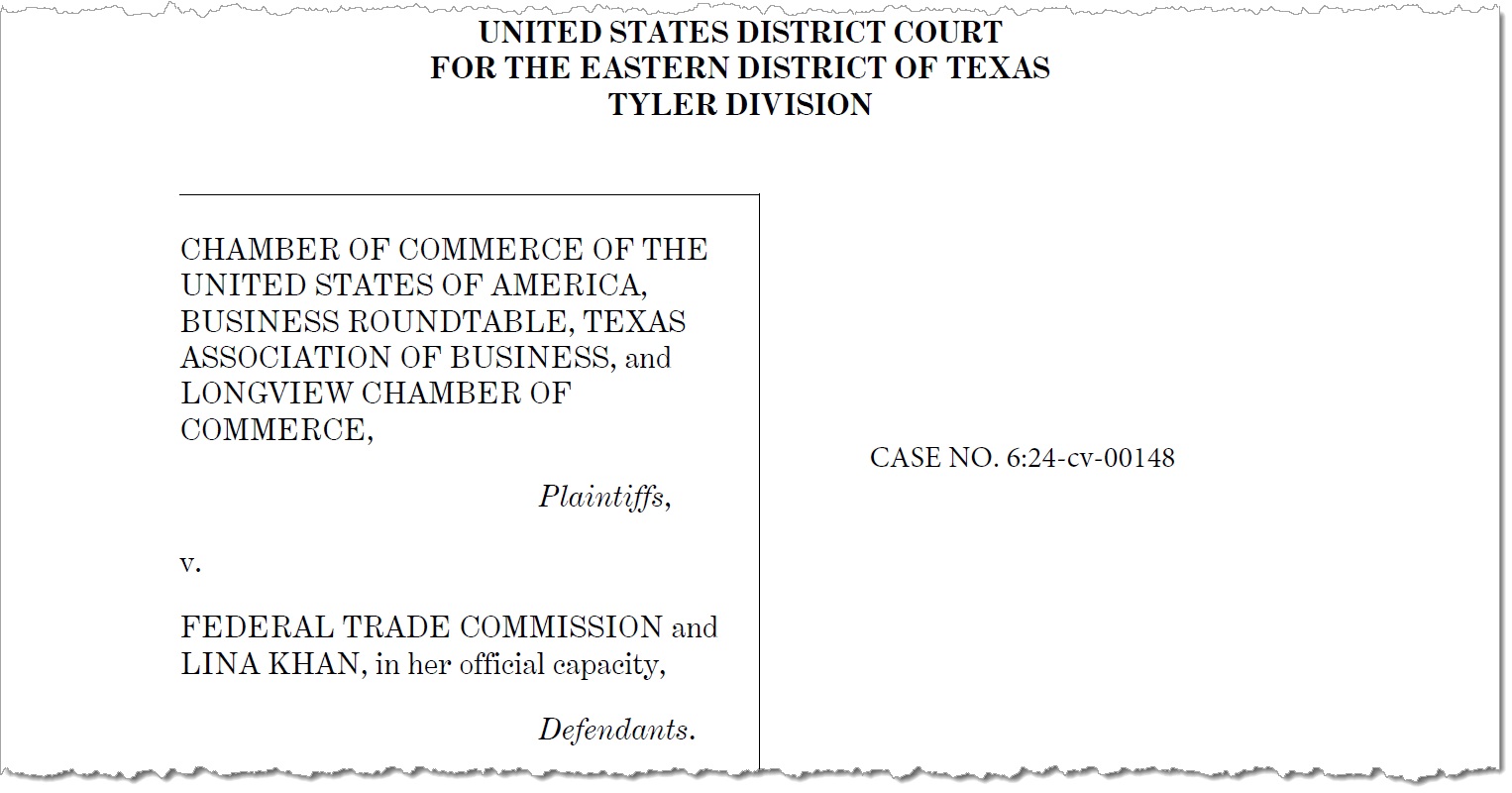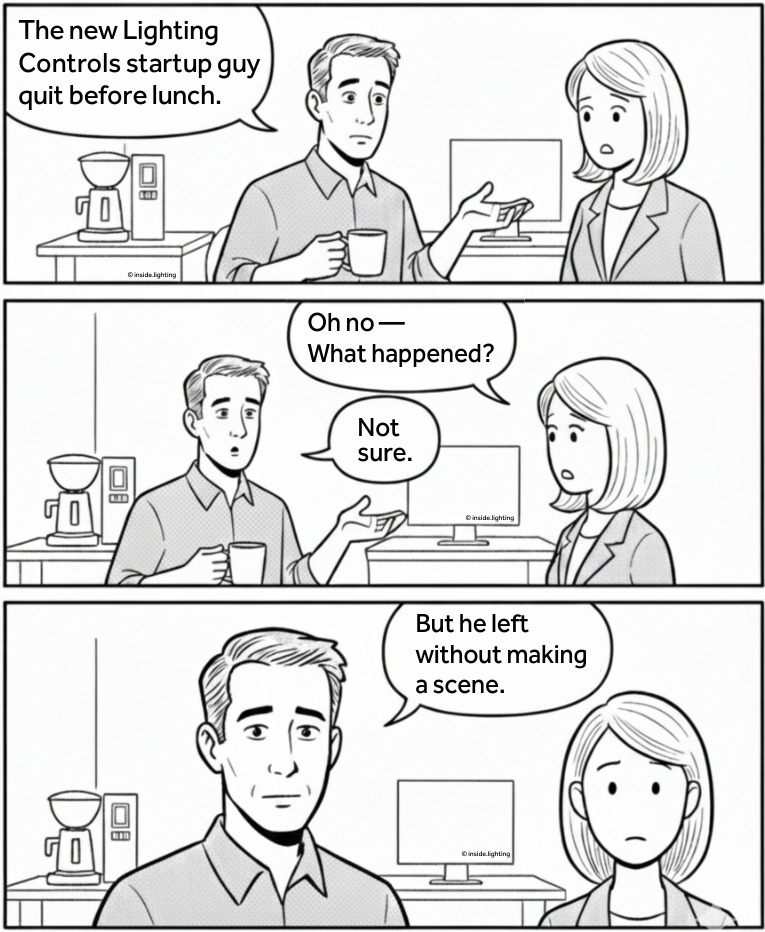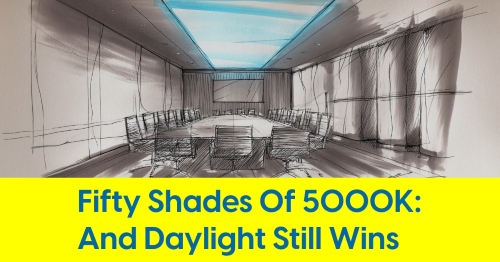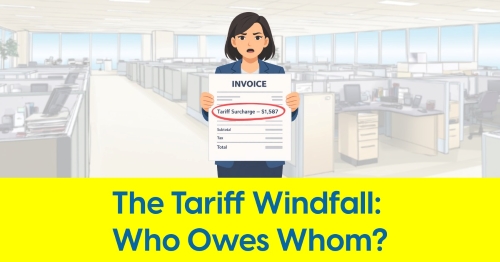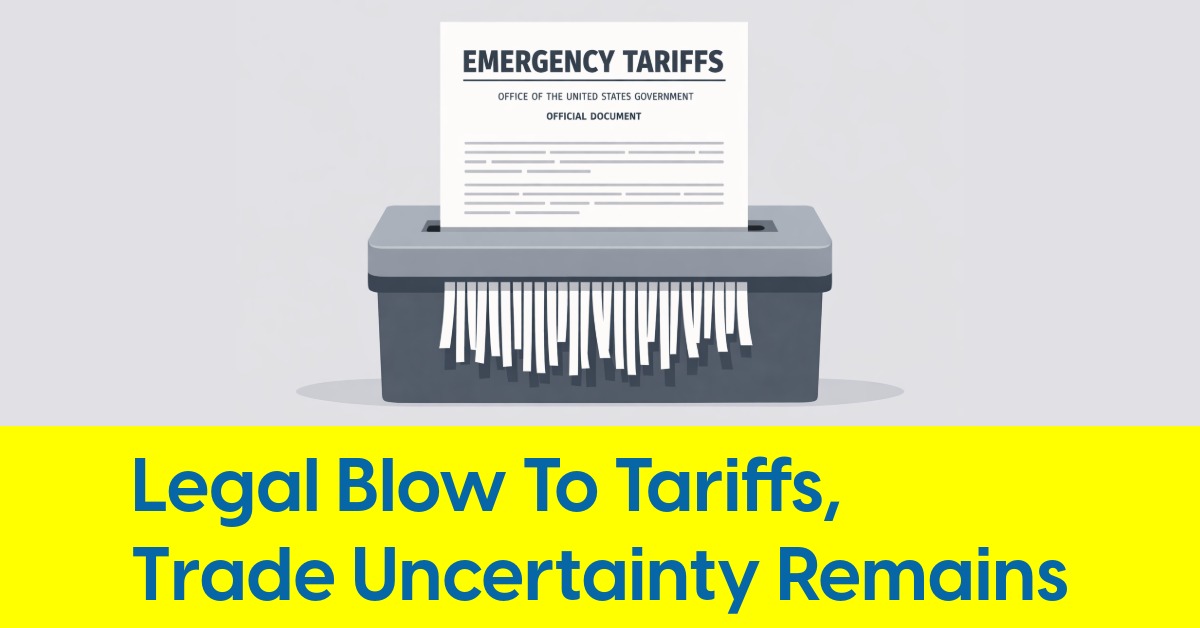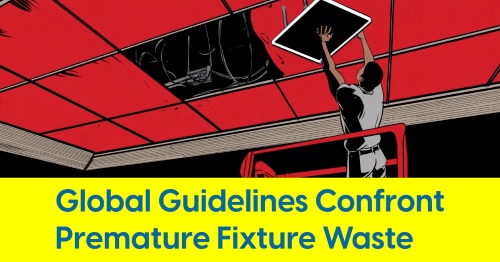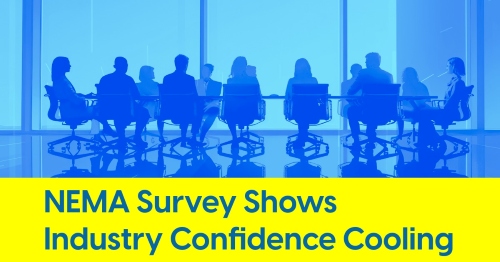April 27, 2024
5 Things to Know: Week Ending April 27
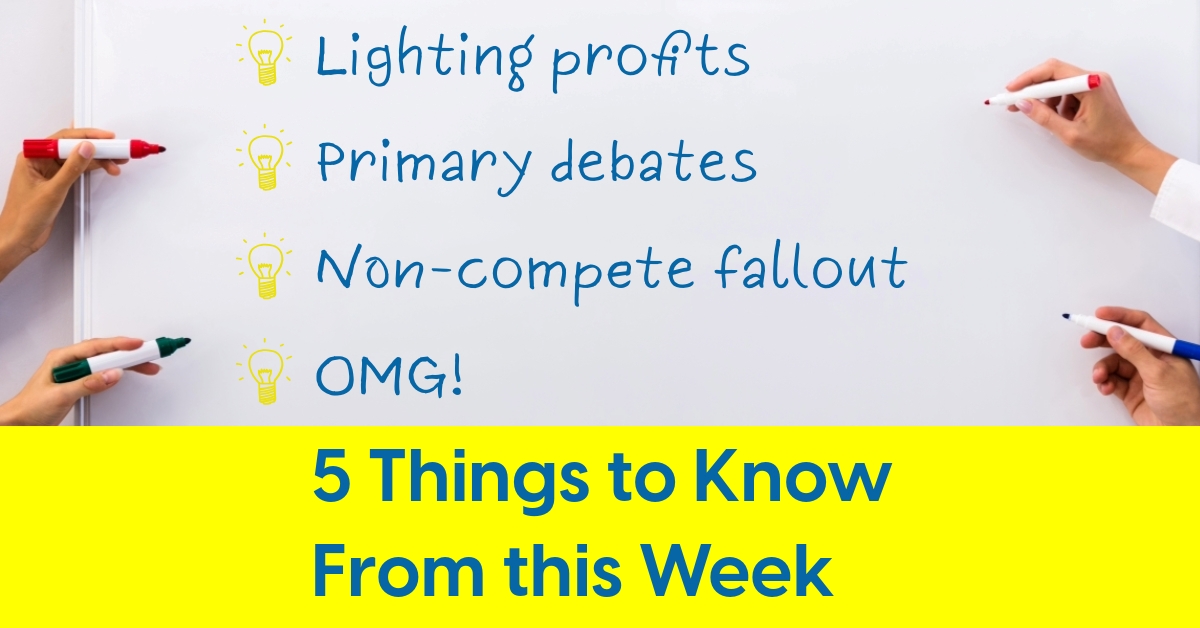
Workers under non-compete agreements may need to pause celebrations. Plus, what makes Italian lighting makers more profitable than German ones?
Here's a roundup of some of the week's happenings curated to help lighting people stay informed.
1. Italian Lighting Companies Outshine Germans in Profitability
A recent study by Munich-based consulting firm Aquin has revealed surprising financial differences between Italian and German lighting manufacturers. According to the study's authors, Martin Kanatschnig, Dr. Kurt Gerl, Raphael Muth, and Jana Dillmann, Italian firms have significantly outperformed their German counterparts, boasting nearly double the profit margins. Specifically, the median EBITDA margin for Italian companies stood at 14.9%, while German firms only achieved 7.7%. Furthermore, Italian lighting manufacturers have seen a growth of over 50% in the past five years, in stark contrast to the modest 10% growth experienced by German manufacturers.
The study also highlighted stark differences in export ratios between the two regions. Italian companies export over half of their production abroad, compared to German firms, which export about a quarter. The research, which involved analyzing financial data from 37 Italian, 30 German, and 7 Austrian lighting manufacturers, suggests that Italian firms benefit from a lower production depth and have effectively combined in-house manufacturing with outsourcing. This strategy has enabled them to maintain high profitability and flexibility in production, which appears to be a key factor in their superior financial performance.
The study examined iGuzzini, Beghelli, XAL and Zumtobel among many others.
2 . CEO to Madam Governor?
Tammy Miller, the current Lieutenant Governor of North Dakota, is making headlines as she campaigns for the governorship with a formidable background in electrical distribution. Before her political career, Miller was the CEO of Border States Industries, a titan in the U.S. electrical distribution sector with over 100 locations and revenues exceeding $2.5 billion.
As CEO of Border States Electric, my track record speaks for itself. I know how to get results, and I'll do the same as governor for the people of North Dakota! pic.twitter.com/avfa90ngrG
— Tammy Miller (@TammyforND) April 24, 2024
This week, Miller's gubernatorial ambitions were on full display during a televised debate for the Republican primary, where she faced U.S. Rep. Kelly Armstrong. Miller has gained the endorsement of outgoing Governor Doug Burgum, who has praised Miller's leadership and is not seeking reelection. During the debate, Miller described her extensive experience in business to address potential policies and strategies, including an anecdote explaining how she led Border State's growth from $485 million to over $1 billion during her tenure.
3. U.S. Chamber Sues FTC over Non-compete Ban
As employees bound by noncompete agreements celebrated the new Federal Trade Commision (FTC) rule to ban nearly all noncompete agreements, the U.S. Chamber of Commerce was planning its challenge to the recently adopted FTC Noncompete Rule, which will soon ban the vast majority of noncompete agreements nationwide.
The U.S. Chamber argues, “Since its inception over 100 years ago, the FTC has never been granted the constitutional and statutory authority to write its own competition rules. Noncompete agreements are either upheld or dismissed under well-established state laws governing their use,” said U.S. Chamber President and CEO Suzanne P. Clark. “Yet, today, three unelected commissioners have unilaterally decided they have the authority to declare what’s a legitimate business decision and what’s not by moving to ban noncompete agreements in all sectors of the economy.”
U.S. Chamber filed a lawsuit against the FTC, contesting the agency's new rule that prohibits noncompete agreements nationwide. The Chamber argues that this rule represents overreach by the FTC, claiming it will harm both the economy and the business ecosystem by interfering excessively in company affairs and employment practices.
The FTC defends the rule by stating that noncompete clauses constitute unfair methods of competition. The lawsuit emphasizes that such a broad regulatory action oversteps the FTC's authority as it has been traditionally constrained by state laws and lacks congressional approval for such sweeping changes.
4. Light Brought 'To a Halt' in Quantum Breakthrough
Newsweek reports that in a groundbreaking experiment, scientists have managed to bring light to a standstill using a photonic crystal, a discovery that holds potential for the advancement of quantum light sources and lasers. Conducted by a Dutch research team, the experiment utilized a material structured specifically to impact the movement of electromagnetic waves.
By minutely distorting the crystal, researchers were able to slow down and completely stop the photons within the light wave, a technique that mirrors the interaction of magnets with electron flow in conductive materials. This technique was also recently studied by researchers at Pennsylvania State University, highlighting a growing interest in this quantum effect.
Ewold Verhagen, a physicist from the AMOLF research institute, emphasized the significance of their findings, explaining that halting light on a nanoscale could greatly enhance its intensity across the entire surface of the crystal. Verhagen, stated "Such light concentration is very important in nanophotonic devices, for example for the development of efficient lasers or quantum light sources."
5. Cyber Attack Leaves Streetlights On 24/7
Years ago, when Leicester City in the U.K. decided to convert its legacy technology streetlights to LED, someone likely promoted the energy-saving aspects of the upgrade to help get the project approved. However, they probably didn’t anticipate this...
Cyber-attack leaves Leicester's street lights on https://t.co/qOggAVhYS0
— BBC Leicester (@BBCLeicester) April 23, 2024
According to the BBC, a cyber-attack on Leicester City Council's systems has led to an unusual citywide disturbance: street lights that refuse to turn off, illuminating Leicester's streets continuously, day and night. The attack, which occurred on March 7 and was described by the council as "highly sophisticated," initially disrupted council services for weeks, but its effects have stretched further, impacting the city's street lighting. Following the attack, the council was forced to take its IT systems offline and prioritize urgent communications, leaving the street lighting in a default mode where lights remain on to prevent safety hazards on unlit roads.
As the city works through the steps required to rectify the issue, the broader implications of the cyber-attack are under investigation by the National Cyber Security Centre and Leicestershire Police. A known ransomware group, infamous for targeting government, education, and health organizations worldwide, has been identified as responsible for the breach. In the aftermath, stolen documents were posted online by the attackers, deepening the crisis and complicating recovery efforts.
